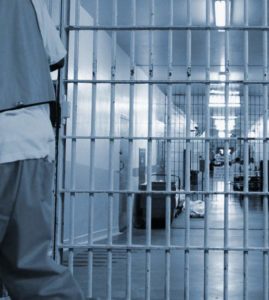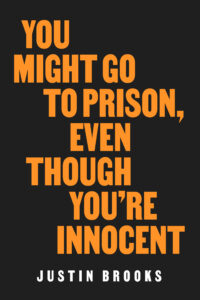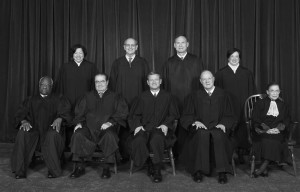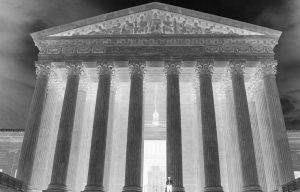Podcast: Play in new window | Download
You Might Go to Prison, Even Though You’re Innocent
There is a common belief that if you’re arrested, you are probably guilty because “where there’s smoke, there’s fire.” People assume that only the guilty confess to crimes because why would an innocent person confess to a crime they didn’t commit? And when a person pleads guilty or is convicted by a jury, that’s the end of the matter, in the minds of most people.
In fact, many innocent people are arrested, especially people of color, due to racial profiling and other forms of discrimination by law enforcement. Implicit bias often infects the case as it moves through the criminal legal system – from the initial police stop, to interrogation, arrest, charging, trial and sentencing. This is particularly tragic when a person is charged with a capital crime for which the death penalty is imposed and that sentence is carried out.
However, it is estimated that 10,000 to 20,000 people are currently serving time in prison after being convicted of crimes they did not commit, largely due to prosecutorial misconduct and police misconduct. Unfortunately, even when exonerated, the psychological and physical damage done is so extensive that many people are never able to fully recover from the trauma. In addition, when the wrongful conviction is solely the result of prosecutorial misconduct, those convicted have no legal recourse to be compensated for the wrong done to them because of prosecutorial immunity.
Guest – Justin Brooks criminal defense attorney and law professor has spent decades working to free innocent people from prison. The Founding Director of the California Innocence Project, Brooks is the author of the provocative new book, “You Might Go to Prison, Even Though You’re Innocent.” In it, he discusses false identifications, junk science, lying snitches, and incompetent defense lawyers – which too often lead to the imprisonment of innocent people.
—-
Expert Panel On Grutter v. Bollinger
Last October, Law and Disorder aired a segment exploring the possibility that the Supreme Court might be poised to overrule Grutter v. Bollinger and gut affirmative action. That’s the landmark 2003 case that held that the 14th Amendment allows public universities to consider race as a factor to assemble a diverse student body.
Around the time of our interview, the National Lawyers Guild New York City Chapter and the Society of American Law Teachers, or SALT, held an educational panel exploring the two affirmative action cases that the Supreme Court will decide by June or July. As many await the high court’s decision, we are pleased to present excerpts from this panel.
The speakers are Victor Goode, former Executive Director of the National Conference of Black Lawyers and Professor Emeritus at CUNY School of Law. Corinthia Carter is a board member of the NLG-NYC Chapter Foundation and president of the Legal Services Staff Association of the UAW. Rounding out the panel is law professor Vinay Harpalani from the New Mexico School of Law and a member of SALT’s board of governors. The panel was moderated by Olympia Duhart, co-president of SALT and a law professor at Nova Southeastern University College of Law.\
Hosted by Attorneys Heidi Boghosian, Marjorie Cohn and Julie Hurwitz
————————




